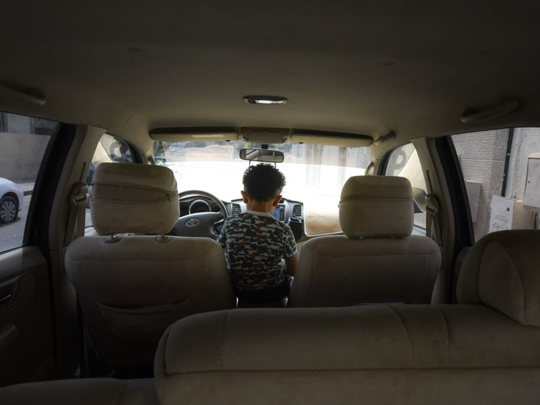
Dubai: Stress overload can invoke momentary memory lapses in parents who unknowingly leave children behind in locked cars on hot summer days, say experts.
Following a long string of similar instances across the country over the years, the death of a four-year-old Emirati child left in a garage on Friday in Sharjah is raising questions once again about prevention and child safety in the UAE.
Mary John, consultant clinical psychologist with the Dubai Community Health Centre, is hesitant to attribute child deaths to one definitive cause but said she agrees that fatigue and stress can leave parents not practising utmost child protection skills at times.
Personality traits by parents can also play a large part.
“I do agree with that, the autopilot of the brain happens when you are really under stress,” John told Gulf News. “It depends on the person, we can’t make a sweeping statement, we can’t generalise.”
Research collected by Janette E. Fennell, founder and president of KidsAndCars.org, one of the leading global advocacy groups trying to prevent hot-car deaths, suggests that parents aren’t thinking clearly when such a heartbreaking tragedy befalls families.
“It’s important to have laws to help educate parents and caregivers about this issue,” Fennell said in an interview with Gulf News from Leawood, Kansas.
“But in most of these cases it deals with either a change in routine or a momentary lapse of memory where the adult ‘thinks’ the child has been dropped off at daycare or removed from the vehicle. Everyone thinks someone else has removed the child. This appears to be the situation where the grandmother ‘thinks’ the child is with her siblings,” Fennel said.
“Incredibly, the biggest mistake parents make is to think that something like this could never happen to them or their family. If that is their mindset, our simple safety tips will not be implemented,” she said.
Memory centres in the brain that are competing for dominance may be to blame in some instances.
Research cited by Fennell’s organisation suggests that habit memory may override other parts of the brain, leading to moments of unthinkable forgetfulness.
“The basal ganglia takes over and suppresses the prefrontal cortex. The brain is on autopilot, doing what it would do on any given day, not accounting for changes in routine. Memory specialists note the basal ganglia is much more likely to take over when someone is fatigued.”
KidsAndCars.org quotes Dr David Diamond, neuroscientist, University of South Florida, who said: “Parents lose awareness that their children are in their cars. Tragically, these parents report that they had pictures of their child on their desks, they talked about their child, and even left work on time to pick up their children from day care.”
A Dubai Police official said earlier that 177 children were left in cars in the space of 16 months but said police officers rescued the children in cars parked in shopping malls and public parks.
“We saved 137 children who were kept in parked vehicles last year and another 40 in the first quarter of 2015,” Major Abdullah Ali Mohammad, Director of land rescue at the General Department of Transport and Rescue, said in May this year. “Luckily, officers from the department found these children moments before they risked suffocating.”
By comparison, in the United States, statistics compiled by KidsAndCars.org reveal that 724 children have died from vehicular heat stroke from 1991 to 2014.












